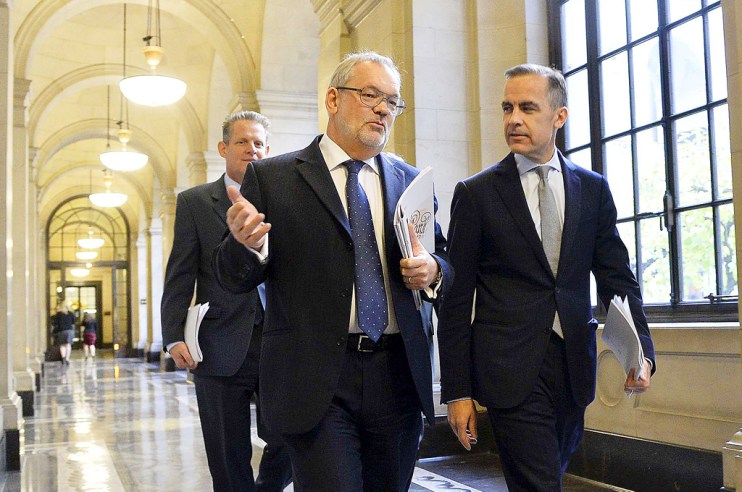Top economist Sir Charlie Bean warns UK productivity crisis threatens capitalism

The threat of Brexit to the economy is “small beer” compared to the UK’s decade-long productivity crisis, which could undermine consent for British capitalism, one of the country’s top economists has warned.
In an interview with City A.M., former Bank of England deputy governor Sir Charlie Bean said the failure of productivity to meaningfully grow has led to the longest period of wage stagnation since the 1800s.
Read more: Sir Charlie Bean: Forget Brexit – the UK productivity crisis is a threat to capitalism
Bean said this has caused people to feel they “don’t have a stake in capitalism”. He warned: “That’s when the consent for the system starts breaking down.”
Increasing productivity – output per hour worked – is central to increasing long-term growth, as it sustainably pushes up supply and wages.
Yet the UK has been mired in a decade-long productivity crisis. Since the financial crash, output per hour has grown at about 0.4 per cent per year. Before 2008, it was averaging more than two per cent.
This has left productivity 20 per cent below its pre-crisis trend, with serious consequences. Last month, the Bank of England slashed its growth predictions for the economy and said productivity shows little sign of picking up.

A report from the Sussex and Loughborough universities last week said productivity growth over the last decade has been the worst since the Industrial Revolution.
Bean, who is now the top economist at the Office for Budget Responsibility, said that if productivity does not pick up, “you can’t deliver the sort of increased living standards that people want”.
He said: “You also don’t have the wherewithal for tackling the challenges of ageing, the challenges of climate change.”
“That does just challenge the legitimacy of capitalism as a way of running society.”
Bean recommended the government focus on “boosting skills, boosting infrastructure, doing things that spread good management practice [and] encouraging investment”.
Chancellor Sajid Javid has pledged to tackle low productivity in his 11 March Budget by increasing spending across the country, with a focus on infrastructure projects.
Yet Javid’s room for manoeuvre has been “greatly reduced” by changes to accounting standards, slower forecasted growth, and previously announced spending, Bean said.
He warned against tasking the Bank of England with tackling productivity. “It seems to me those sorts of decisions are decisions that should be in Whitehall,” he said, arguing that investment spending is highly political.
Main image: Getty